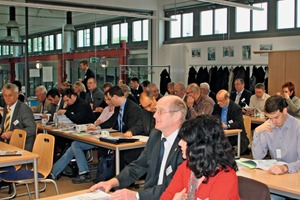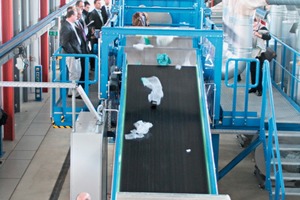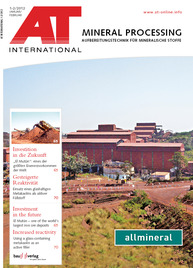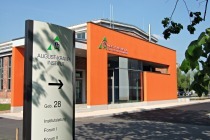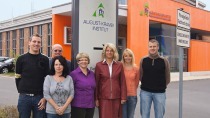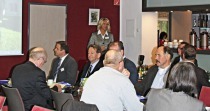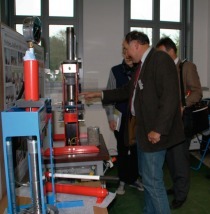4th Nordhausen Secondary Raw Materials Workshop – Research for the field
Over 60 professionals from industry, science and research gathered from 20.-21.10.2011 at the 4th Nordhausen Secondary Raw Materials Workshop – organized in the proven tradition by the team of the Department of Environmental and Recycling Engineering at Nordhausen University of Applied Sciences at the facilities of the August-Kramer Institute (Fig. 1). The 2-day event comprised a total of three topic sessions. Focus of the first session was existing European potential for waste-derived raw materials, with the recovery of strategic metals from complex waste streams growing in importance as a consequence of the increasing scarcity of raw materials. The beginning of the second day was devoted to waste-derived and substitute fuels. Here issues concerning DIN standards, quality assurance, comminution, and aerodynamic characterization of WDFs as well as chlorine determination on the basis of model material mixes were discussed. The session was concluded with a paper presented on the current level of automation of the Nordhausen pressing drill for the extraction of representative analysis samples.
In the third session of papers, current research projects and findings concerning sorting were presented. Discussed, for instance, were trends in sensor-based sorting as well as material-specific application possibilities for cross-flow separators in the waste management industry, based on the example of commercial waste, household waste and packaging waste. Finally, the new research modules were presented on the recycling of lightweight materials from the joint research project between Nordhausen University of Applied Sciences and the Altenburg-based machine engineering firm Schulz & Berger Luft- und Verfahrenstechnik GmbH. These research modules focus on new developments in process engineering for packaging recycling. A completely new pneumatic principle for opening the collected yellow bin bags for this type of waste was developed, which contrasts with conventional bag tearing technology. Another research module concerns sorting technology; with the newly developed double-drum vacuum separator it is possible to separate lighter and flatter solids from heavier unwanted solids from a common material stream, and therefore obtain a higher purity of the film fraction. Both machines are already installed at the pilot testing facility of the August-Kramer-Institute and were demonstrated successfully at the workshop (Fig. 2). Another research module is planned on dedusting systems with the rotary vacuum filter.
Thanks to a successful cooperative network with different companies in the region and other universities as well as the active support of collaborative projects by Thuringia’s Ministry of Economy, Labour and Technology, Prof. Dr.-Ing. Sylvia Schade-Dannewitz from the Department of Environmental and Recycling Engineering with its focus on process engineering is not only successful with her team in steadily expanding their field-oriented research activities. Generally, the prompt transfer of the research findings to private enterprises is guaranteed and new jobs consequently created. In any case, it will be exciting to find out what new findings will be presented at the next secondary raw materials workshop and what new things there will be to discover during the traditional tour of the facilities of the August-Kramer Institute in 2012 (Fig. 3).

